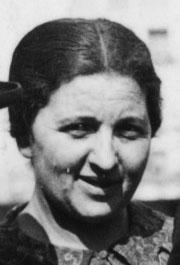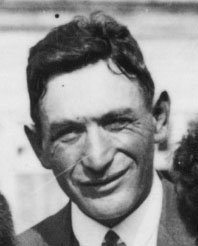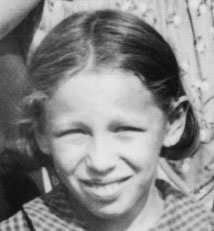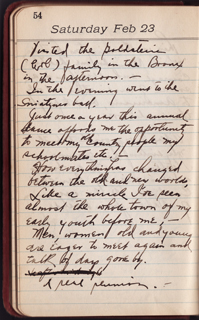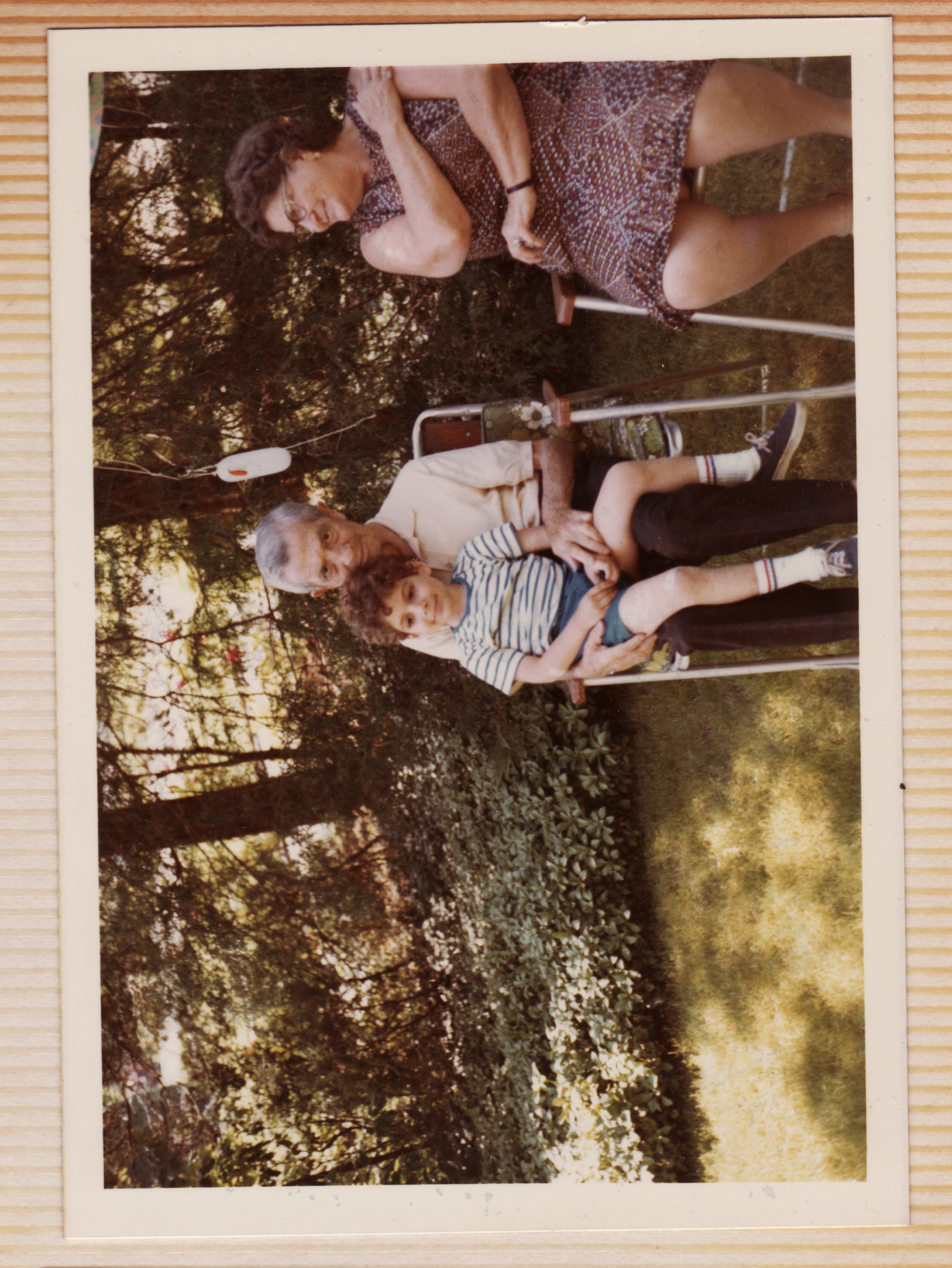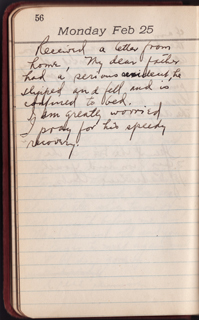
6:30P.M. This was certainly a mo-
notonous day so far what will happen later. –
9:45
I met at Breindel’s Clara the
daughter of Cousin Leizer, and
others, we went to Eva where
we had a most enjoyable eve.
Incl in the company were
Mr. and Mrs. Mendel, C, and her
friends.
I was glad indeed to receive
personal greetings from my parents
and other dear ones on the other
side, and that they are in good
health, which makes me
happier
The above mentioned
Clara Leizers arrived from Europe
recently.
—————–
Matt’s Notes
Papa has time-stamped this entry as he did on New Year’s eve, which makes me think he does this when he’s excited about what the evening has in store. In this case, when he penned his 6:30 paragraph he was getting ready to meet a recent arrival from “the other side.” With only the mails to keep him in touch with his large circle of family and friends in Snyatyn, this must have been a rare treat indeed. (The last paragraph of the entry is written in a light, straight hand, very different from his usual strong, slanted style. Perhaps he added this late at night, unable to sleep with news from home running through his head.)
Still, at the end of the evening he describes himself as “happier”, but not “happy,” which makes me sad. His English is too strong for him not to know the difference between the words. At best he’s trying not to tempt the keyn aynhoreh by seeming too cheerful. More likely though, it betrays how deep and indefatigable his sadness must have been.
Sadder still: The “dear ones” he was so happy to hear about would almost all be killed by German soldiers a few years later. (Forgive me for laying it on so thick, but any mention of Snyatyn carries with it this cloud.) All the more remarkable, then, that when I knew him at the end of his life he radiated such personal joy and satisfaction. My mother has a photograph of him, sitting on our back lawn lawn, surrounded by his grandchildren in the sunshine, beaming kvelling with total contentment. In the end, he had all he wanted, and all the sadness of his youth, sadness so deep he wouldn’t allow himself the use of the word “happy”, was obliterated. It makes me want to send him a packet from the future with that photograph and a note saying “Papa, this is you.”
————-
Updates

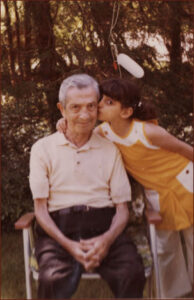
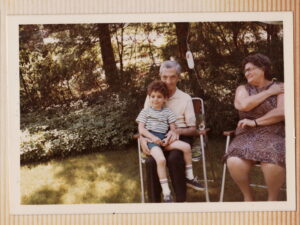
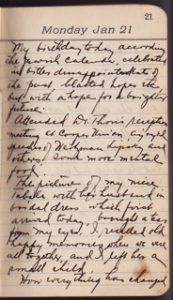 My birthday today according
My birthday today according
